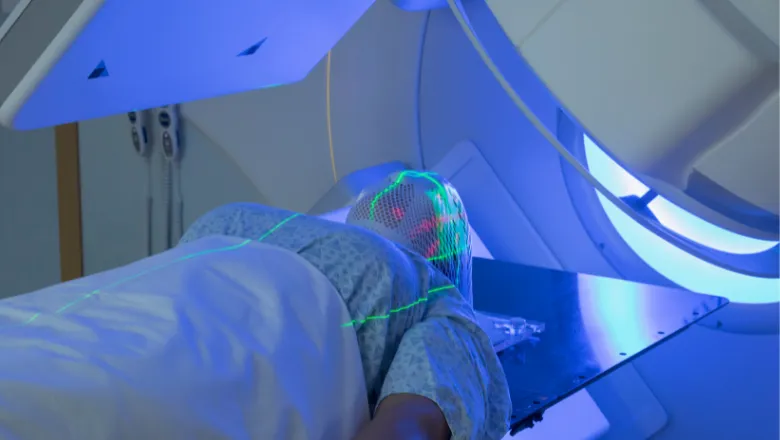30 May 2023
King's researchers highlight impact of war on radiotherapy in Ukraine
King’s researchers assess the state of radiotherapy care in Ukraine following the invasion of Russia, describing the problems created by the invasion and solutions required.

The Russian invasion of Ukraine has created significant issues with its cancer care infrastructure including radiotherapy – a therapy that uses targeted radiation to destroy cancer cells. Published in Lancet Oncology, the commentary involving Professor Richard Sullivan with the Global Coalition for Radiotherapy highlights the problems created by the war.
As well as damage from direct bombing and the loss of infrastructure under Russian occupation, Ukraine’s cancer care capacity is suffering from a range of indirect problems. Air and drone strikes disrupt supply chains and interfere with procedures from surgery to diagnostics by interrupting electricity and internet connections.
Though areas in western Ukraine have less damaged infrastructure in comparison to eastern Ukraine, such facilities are still under strain as they’re taking on extra patients from areas with greater damage and managing with less healthcare staff as well as disrupted supply chains.
Cumulatively, these problems make it harder for patients to access treatment as well as leading to later presentation of cancer. This situation creates a vicious spiral. More time and resources further strains the healthcare system and creates more delays, thus creating a negative feedback loop.
Highlighting experience from prior conflicts in the Middle East, the authors warn that such issues can build up to create even more devastating issues in the longer term due to the degraded infrastructure and lack of healthcare workforces reducing Ukraine’s cancer care capacity.
In response to this crisis, innovative solutions have already begun to emerge. Within Ukraine, its medical institutions like Ukraine’s medical physics association and healthcare workers (using social media) are providing live, on-the-ground knowledge. International organisations have also established the Emergency Radiotherapy Task Force through the Global Coalition on Radiotherapy, a centralised institution that gathers real-time information which can help to co-ordinate efforts to support radiotherapy.
The authors praise these developments, but argue more work and funding is needed, particularly to address medium-to-longer term solutions. This includes develop better health intelligence to support Ukrainian cancer care, continuation of vital clinical cancer research and forward planning for reconstruction and supporting Ukraine’s national cancer control planning.
The experience of Ukraine and other countries such as Jordan and Turkey that have experienced having to deliver cancer care in conflict speak to the need for better research and planning for key modalities such as radiotherapy, surgery and systemic therapy care, for example providing new joint care models, novel supply and maintenance chains, managed triage for patients and continual support models to ensure critical care is interrupted to a minimum.
The authors note that humanitarian agencies such as UNHCR and other international NGOs have little insight or expertise in managing complex healthcare needs such as cancer in conflict, and this needs urgently addressing.
Above all, the current state of radiotherapy care highlights the need to support Ukraine now in building its radiotherapy and imaging infrastructure as well as supporting the wide range of human resources, from radiation oncologists to medical physicists that can ensure delivery. Radiotherapy in particular is a critical modality of cancer care that needs special consideration in conflict.
Read the full paper: Radiotherapy in conflict: lessons from Ukraine.

